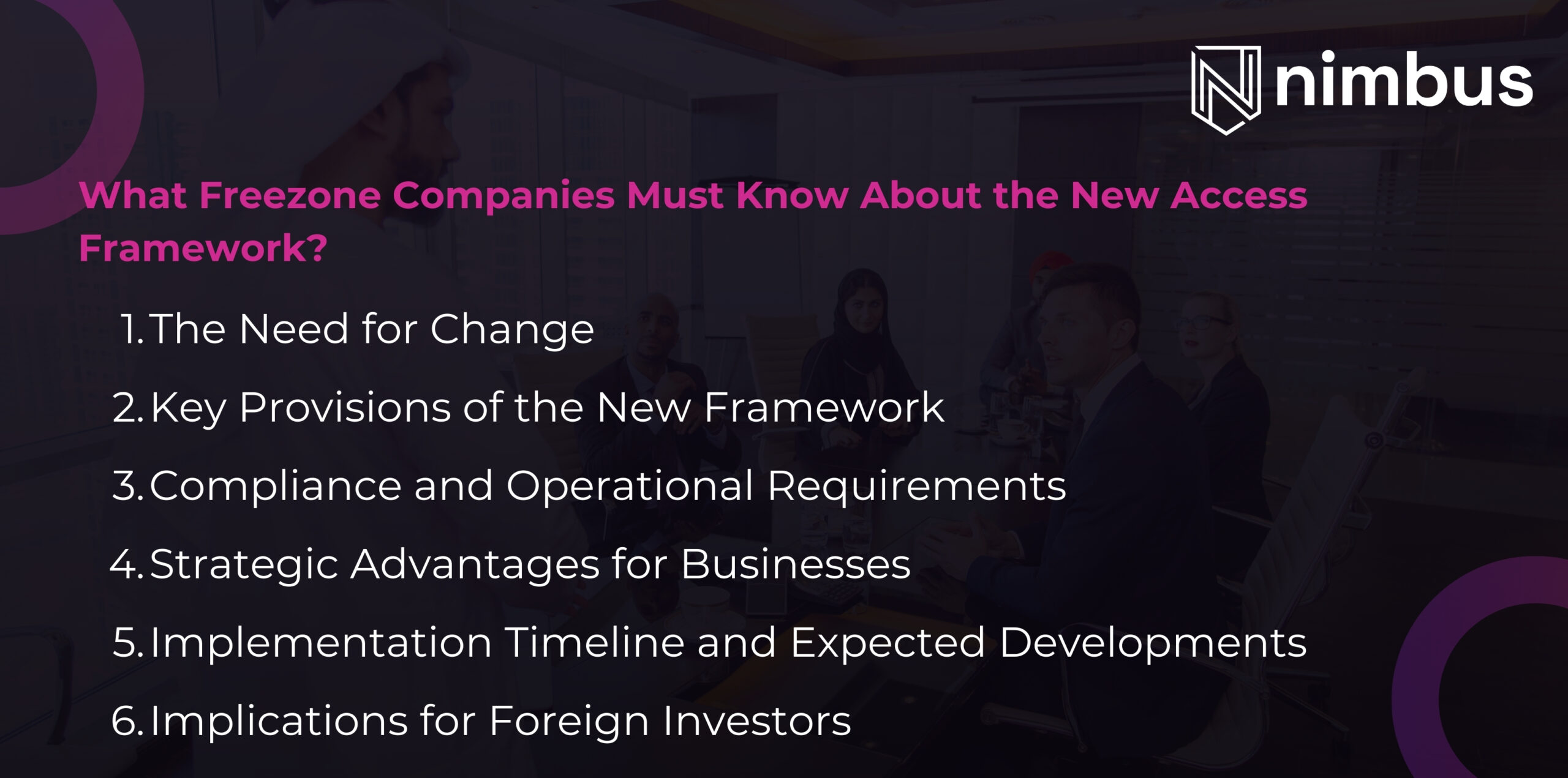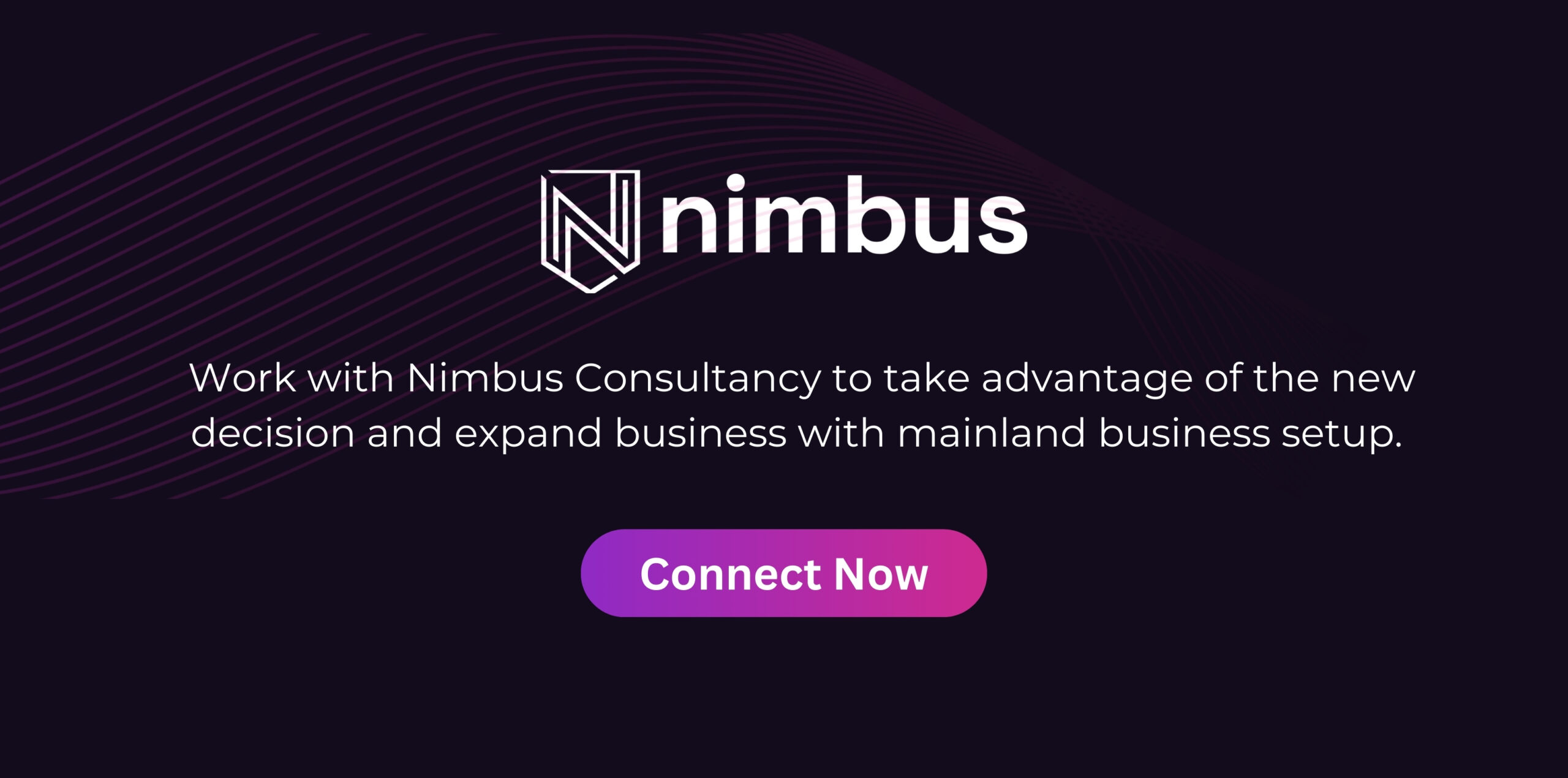In a significant policy shift, Dubai recently introduced Executive Council Decision No. 11 of 2025, allowing freezone companies to legally operate in mainland Dubai through new licensing pathways.
However, with new policies come new regulations and freezone businesses that wish to take advantage of this new decision must detail themselves on key provisions along with regulatory requirements.
This post gives a quick overview to businesses operating in the UAE freezones and understand the new decision and its implications.
What Freezone Companies Must Know About the New Access Framework?

1. The Need for Change
Till now, free zone companies in Dubai were confined to operating within their designated zones, limiting their ability to engage directly with the broader mainland market.
This often led to complex corporate structures and increased operational costs for businesses seeking for mainland business setup in Dubai. But with this decision, freezone companies can now make profitable venture in the mainland as well.
2. Key Provisions of the New Framework
Effective from March 3, 2025, the new decision introduced three distinct pathways for free zone companies to conduct business in mainland Dubai, which are enlisted below.
- Establishing a Mainland Branch with Physical Presence: Free zone companies can set up a branch in mainland Dubai, requiring physical premises and compliance with local regulations.
- Operating Onshore from Free Zone Premises: Companies can conduct mainland activities without relocating by registering a mainland branch that operates from their existing free zone location.
- Obtaining a Temporary Permit for Specific Activities: Businesses can acquire a short-term permit, valid for up to six months, to carry out specific projects or commercial activities in mainland Dubai.
These options offer flexibility, allowing companies to select the most suitable model that will fit operational needs and strategic goals.
3. Compliance and Operational Requirements
To operate under the new framework, free zone companies must adhere to several regulatory and procedural obligations.
- Licensing and Approvals: Companies must obtain the appropriate licenses or permits from the Dubai Department of Economy and Tourism (DET), along with approvals from sector-specific regulators if applicable.
- Accounting and Financial Reporting: Businesses are required to maintain separate accounting records for their onshore operations to ensure financial transparency and facilitate compliance with the UAE’s federal corporate tax regime.
- Labor and Emiratisation Considerations: While companies can deploy free zone–based employees for onshore activities without altering employment contracts, they must still comply with federal and local labor laws, including Emiratisation mandates.
4. Strategic Advantages for Businesses
The new framework offers three main strategic benefits which are:
- Cost Efficiency: By enabling free zone companies to operate onshore without opening new physical offices or hiring dedicated mainland staff, the decision significantly lowers the cost of market entry.
- Organizational Restructuring: Companies can centralize operations under a freezone umbrella while engaging with the mainland market, reducing the need for multiple legal entities and simplifying corporate structures.
- Increased Market Reach and Revenue Potential: Access to mainland Dubai allows freezone entities to engage with a broader client base, pursue government contracts, and forge new commercial partnerships.
5. Implementation Timeline and Expected Developments
While the regulatory shift is already in force, full implementation is expected to unfold in phases.
- Activity List and Regulatory Clarity: The DET, in coordination with relevant regulatory authorities, is expected to issue an official list of permitted onshore activities within six months of the decision’s enactment.
- Grace Period for Adjustment: Freezone companies currently conducting business onshore without proper licensing have until March 2026 to regularize their status, providing time to align with the new framework.
6. Implications for Foreign Investors
The decision carries substantial implications for foreign investors and multinational corporations and will certainly impact business setup in Dubai.
- Lower Barriers to Market Entry: The new licensing pathways offer a viable and legal route to full UAE market participation without the need to establish separate mainland entities.
- Flexible and Phased Expansion: The temporary permit regime allows companies to test the market and build client relationships without immediate, large-scale commitments.
- Enhanced Case for Regional Headquarters: The reform strengthens Dubai’s value proposition as a regional headquarters location, offering a more integrated legal framework for cross-jurisdiction operations.
A Strategic Opportunity for Foreign Investors
Dubai’s Executive Council Decision No. 11 of 2025 represents a significant step toward a more open and better economic integration.
By enabling free zone companies to legally operate in mainland Dubai, the decision reduces structural inefficiencies, expands market access, and supports Dubai’s ambition to position itself among the world’s top three global economic hubs by 2033.
Businesses looking to capitalize on this policy change should engage in detailed planning and legal consultations to ensure compliance with the new framework and optimize their operational strategies.



